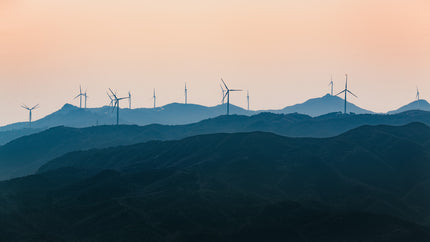It's thought that 8% of the world's forests were destroyed between 1990 and 2008 to make way for palm oil plantations.
As palm oil’s popularity surges, growers are looking for ways to meet the new demand. The problem - plantations thrive in the same climate as tropical forests. So, naturally, these are the first to be targeted.

This is one of the projects we support through carbon offsetting. It protects 47,237 hectares of uninhabited peat swamp forest on the southern coast of Borneo.
In the absence of the project, the area would be converted to palm oil plantations. It is common practise to use the clearance as an opportunity for logging, burning unused felled trees and remaining forest, and systematic draining of the peatland area. The forest would then be replaced by a palm monoculture.

This forest is a diverse habitat that, over centuries, has naturally developed in harmony with the landscape and animals which inhabit it.
If this forest is not protected, orangutang and more than 50 other endangered species would risk disappearing completely. The 14 local forest communities along the eastern edge of the reserve would risk loosing their homes.

Without protection, it risks being replaced by a man-made monoculture that’s out of tune with resources that are naturally available. This project protects more than just the forest – it protects the animals and communities who depend on it.
Why we like this project
This is one of the projects takes a holistic view of land management. As well as absorbing carbon from the atmosphere, it acknowledges the local communities and endangered species who call tropical forests their home and rely on the land.
Sources
Image credits
Infinite Earth





